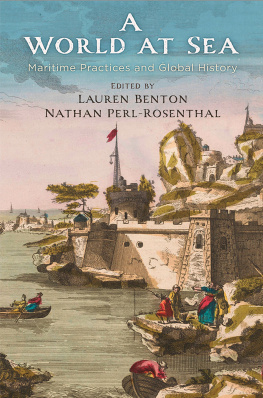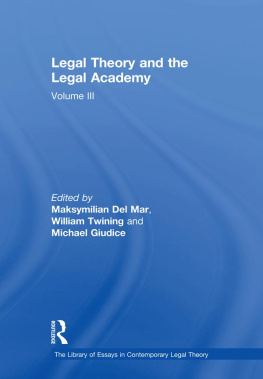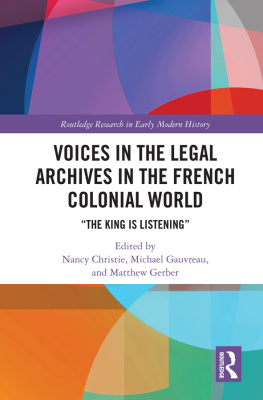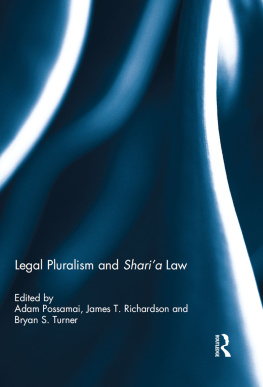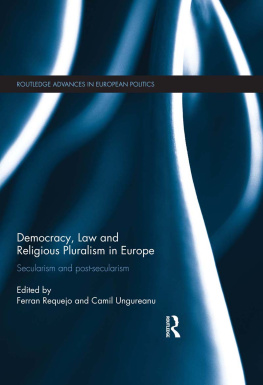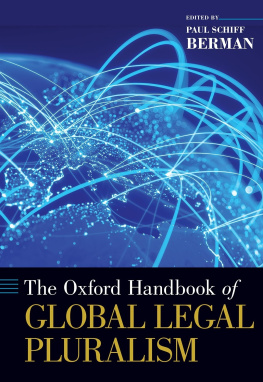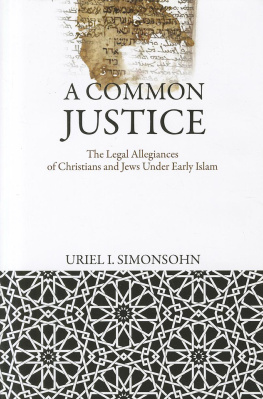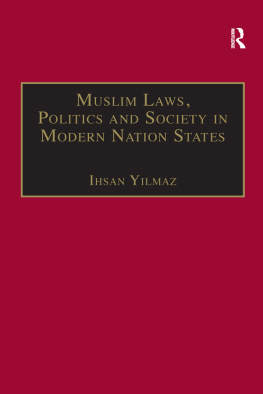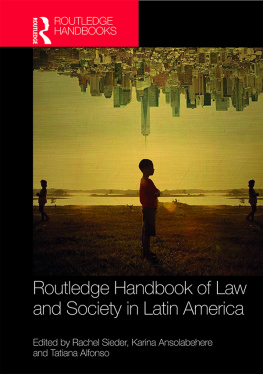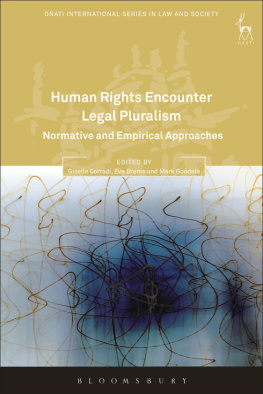Thank you for buying this ebook, published by NYU Press.
Sign up for our e-newsletters to receive information about forthcoming books, special discounts, and more!
Sign Up!
About NYU Press
A publisher of original scholarship since its founding in 1916, New York University Press Produces more than 100 new books each year, with a backlist of 3,000 titles in print. Working across the humanities and social sciences, NYU Press has award-winning lists in sociology, law, cultural and American studies, religion, American history, anthropology, politics, criminology, media and communication, literary studies, and psychology.
LEGAL PLURALISM AND EMPIRES, 15001850
Legal Pluralism and Empires, 15001850
Edited by Lauren Benton and Richard J. Ross

NEW YORK UNIVERSITY PRESS
New York and London
www.nyupress.org
2013 by New York University
All rights reserved
References to Internet websites (URLs) were accurate at the time of writing.
Neither the author nor New York University Press is responsible for URLs that
may have expired or changed since the manuscript was prepared.
LIBRARY OF CONGRESS CATALOGING-IN-PUBLICATION DATA
Legal pluralism and empires, 1500-1850 / edited by Lauren Benton and Richard J. Ross.
pages cm Includes bibliographical references and index.
ISBN 978-0-8147-7116-7 (cloth : alk. paper)
ISBN 978-0-8147-0836-1 (paperback : alk. paper)
1. ColoniesLaw and legislationCongresses. 2. Legal polycentricityCongresses. I.
Benton, Lauren A., editor of compilation. II. Ross, Richard Jeffrey, editor of compilation.
K3375.A6L44 2013
342.04130903dc23
2013001060
New York University Press books are printed on acid-free paper, a
nd their binding materials are chosen for strength and durability.
We strive to use environmentally responsible suppliers and materials
to the greatest extent possible in publishing our books.
Manufactured in the United States of America
10 9 8 7 6 5 4 3 2 1
To our parents:
Charlotte Benton and (in memoriam) George Benton
and
Leonard Ross and Lorraine Ross
CONTENTS
Lauren Benton and Richard J. Ross
Philip J. Stern
Helen Dewar
Karen Barkey
Richard J. Ross and Philip J. Stern
Brian P. Owensby
Lauren Benton and Lisa Ford
Linda M. Rupert
P. G. McHugh
Paul D. Halliday
Jane Burbank and Frederick Cooper
ACKNOWLEDGMENTS
This volume developed out of a 2010 conference on New Perspectives on Legal Pluralism organized by Lauren Benton and Richard Ross through the Symposium on Comparative Early Modern Legal History. Richard Ross oversees the Symposium, which gathers each year under the auspices of the Center for Renaissance Studies at the Newberry Library in Chicago to discuss the comparative legal history of the Atlantic world in the period c. 1492 to 1815. Proliferating scholarship on the layered, jurisdictionally complex, and multicentric nature of law in overseas empires suggested the value of a conference assessing legal pluralism in colonial settings. The rich papers presented at the New Perspectives on Legal Pluralism symposium, together with the valuable conversation they inspired among participants, prompted the organizers to think of assembling a volume on the subject.
The editors wished to produce a volume that studied the provenance, meaning, and implications of legal pluralism across a wide range of early modern empires, in settings as far apart as Peru and New Zealand, and in every century between 1500 and the middle of the nineteenth century. To that end, we drew from contributions by participants in the symposium and also invited other scholars to write for the volume. Karen Barkey, Linda Rupert, Philip Stern, and P. G. McHugh presented papers at the symposium that subsequently became chapters in this volume. Lauren Benton, Helen Dewar, Lisa Ford, Brian Owensby, and Richard Ross contributed chapters written especially for the volume. We were lucky to recruit Jane Burbank, Frederick Cooper, and Paul Halliday to write chapters presenting concluding perspectives.
The editors wish to thank the authors for their essays. All undertook revisions with dedication, care, and good humor. Several anonymous commentators for New York University Press suggested ways to improve the framing of the volume. Deborah Gershenowitz, the history and law editor at the press, expertly guided the book through the publication process. The University of Illinois College of Law provided funding for the conference out of which this volume emerged. Funds for promoting the study of legal history at New York University contributed to covering the costs of preparing the manuscript for publication. The Center for Renaissance Studies at the Newberry Library offered an ideal site for the proceedings.
1
Empires and Legal Pluralism
Jurisdiction, Sovereignty, and Political Imagination in the Early Modern World
LAUREN BENTON AND RICHARD J. ROSS
The subject of empires is both very old and very new. An old narrative of a transition from empires to nation-states has now given way to an emphasis on the centrality and persistence of empires in world history. At the heart of this history is a recognition of the importance of legal pluralism to empires, which invariably relied on layered legal arrangements within composite polities. Empires were legally plural in their core regions as well as in their overseas or distant possessions. Many empires assembled political communities boasting divergent constitutional traditions; uneasily maintained overlapping or clashing royal, ecclesiastical, local, and seigneurial jurisdictions; and encompassed a variety of forms and sources of law. Such pluralism often grew more complex in colonies and far-flung peripheries as administrators and settlers dealt with indigenous, enslaved, and conquered peoples. The resulting legal orders encompassed multiple zones with unstable and varied relationships to one another and to imperial centers.
Colonial administrators and jurists studied legal pluralism without using the term. Officials and settlers described plural institutions and practices in order to guide rulers and, sometimes, to question the justice of empire itself. The Spanish scholastic Francisco de Vitoria, for example, in the process of criticizing the conduct of Spain in the New World, developed legal rationales for European conquest and colonization that balanced Castilian and indigenous rights and jurisdictions. Such preoccupations continued into late-colonial and postcolonial contexts, encompassing debates about definitions of quasi-sovereignty and the legal status of political communities borne out of the expansion, fragmentation, dissolution, and reconfiguration of empires. Across the centuries, persisting questions about the nature and structure of plural legal orders in empires reflected and informed wider currents of religious, legal, and political thought.
This volume takes as its subject the shifting structures and processes of legal pluralism as well as historically changing ways of imagining and describing legal pluralism in empires. The chapters contribute to a new narrative of world history that places empires at its center. They present new findings and pose new questions about the complex and contingent configuration of imperial lawnot as a structure of command but as a set of fluid institutional and cultural practices.
Next page

